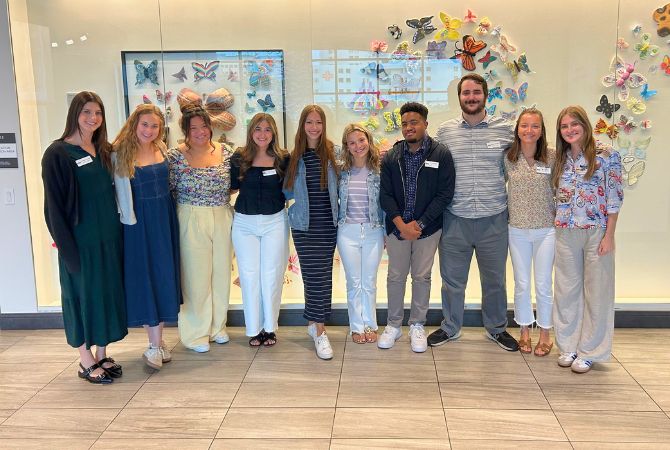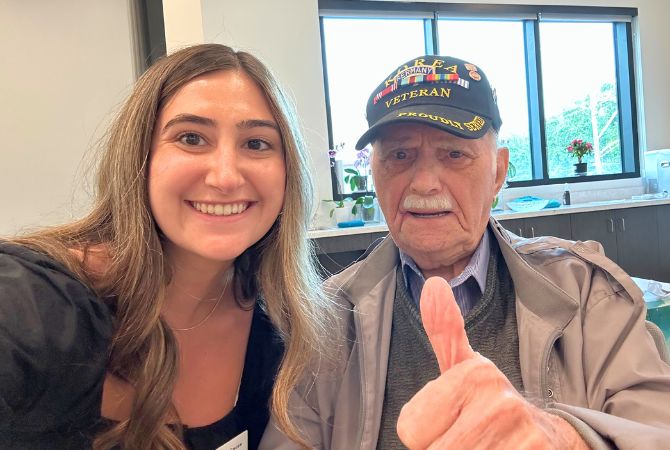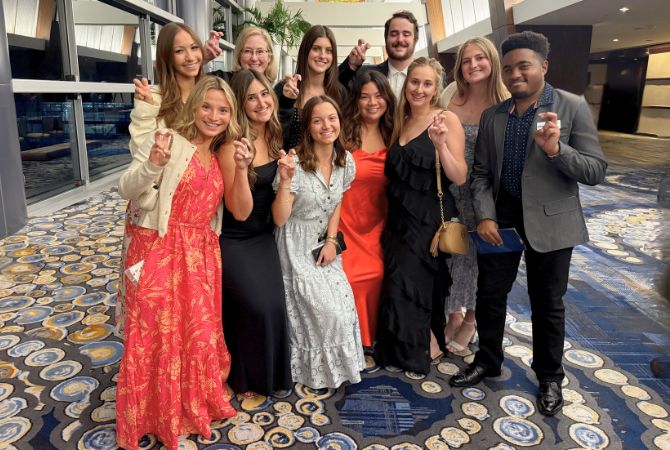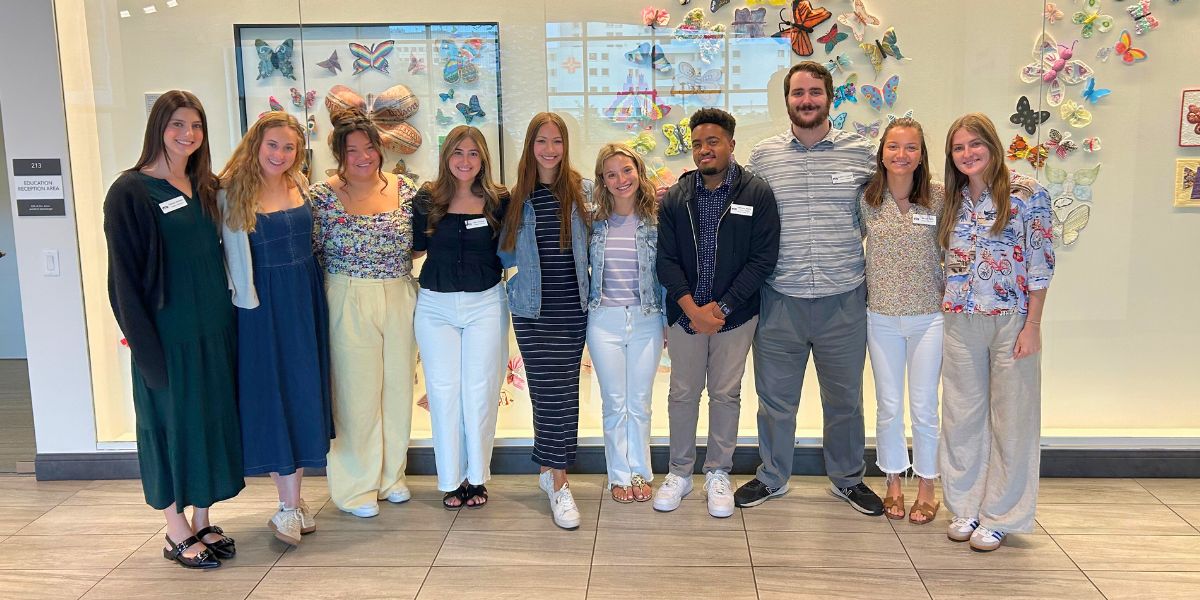How do you teach future educators to responsibly engage with one of the most devastating chapters of human history? After five powerful days at the Holocaust Museum Houston, M.Ed. Curriculum and Instruction students specializing in language and literacy, are equipped to engage history, humanity and moral education.

Eleven TCU graduate students were awarded The Warren Fellowship for Future Teachers. These pre-service teachers joined a cohort of 18 educators and scholars from across the country for an immersive experience designed to deepen their historical understanding of the Holocaust, elevate their teaching practices and reflect on their roles as educators of empathy, justice and truth.
“It was very inspiring to hear from an actual Holocaust survivor and actually put a face to history,” expressed Hunter Ferguson ‘25.
The Warren Fellowship for Future Teachers equips new teachers with the historical content and pedagogical frameworks necessary to teach about the Holocaust and human rights with accuracy and compassion.
The 2025 fellowship marked the third year of TCU’s participation and included a robust agenda of gallery tours, conversations with Holocaust survivors, lectures from national scholars, along with discussions on teaching strategies and ethical decision-making.

Each day challenged fellows to consider new perspectives as they engaged with topics such as antisemitism through the centuries, democracy, as well as the power of literature and survivor testimony.
Jan Lacina, Ph.D., senior associate dean and Bezos Family Foundation Endowed Chair, also delivered a keynote speech, Using Children’s Literature to Learn About the Holocaust.
A highlight of the fellowship included Lyndon Baines Johnson Moral Courage Dinner, where students heard from international hostage advocates and leaders dedicated to advancing human rights.
According Marie Onishi '25, the experience was equal parts educational and emotional—anchored in truth-telling and inspired by the life of Holocaust survivor Naomi Kaplan Warren, for whom the fellowship is named.

Onishi '25 says the Warren Fellowship experience deepened her understanding of the power of personal stories in history. “I realized how much more impactful it is to connect major events to the individuals who lived through them,” she shared.
“Real-life accounts bring history to life—and inspire us to become upstanders, not bystanders.”
The Warren Fellowship experience continues to shape how M.Ed. students think about their role in education—not just as instructors of content, but as guardians of memory, advocates and voices of compassion in classrooms of the future.
Read Reflections from the Warren Fellowship by M.Ed. students Gina LeCause ‘25 and Maggie Nguyen ‘25.
